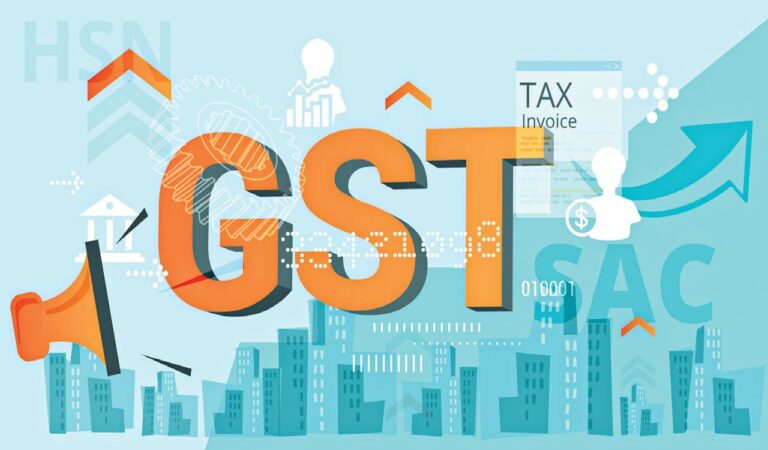
By T Muralidharan
Dear Finance Minister, Thank you for waking up to the MSME ground reality. Pease change the entire GST leadership team. Immediately The GST Council till recently was sleeping and was deeply divided. It was originally touted as a working example of federalism. For the first time in India, major decisions were supposed to be made by the 33-member GST Council of which 31 were States and union Territory representatives. They were dominated by the two central government representatives, including the Finance Minister. The brute majority in Parliament not only killed the spirit of federalism but the GST Council was also trying to kill the goose that laid the golden egg. The GST bureaucracy in the North Block is responsible for this. One-sided law and rules Let me explain this. While making the GST Act and GST rules, a set of overzealous officers decided to create a comprehensive law system to prevent fraud and revenue leakage, and overcome all the limitations of the earlier service tax and the import duty regime. But they forget all about the taxpayer – that the taxpayer is an agent of the government and cannot be held accountable for omissions and commissions in the GST collection system.
Here’s an example. As per Section 50 of the GST Act, part payment of GST dues was allowed. However, the zealous officers conjured up a clause to link full GST dues with the filing of the monthly (GSTR 3B) return and a huge interest payment clause if the entire payment was not made. This clause was not there in the earlier service tax regime and even in the income tax regime where part payments were allowed. They even went a step further. If the GSRT 3B is delayed by a month, they will restrict the taxpayer from filing the GSTR-1 report from next month, thereby strangling the taxpayer from running the business and instead begging or borrowing to pay the GST liability.
MSME agent becomes financier of governments
Now imagine this. I am the agent of the government with a mandate to collect the GST from my customers and pay the same, after deducting the input tax credit (ITC). If my customers don’t pay on time, it is not the government’s problem. So the agent has to finance the principal. How will a small entrepreneur do this?
On top of this, the GST Act put a time limit for claiming the ITC (November of next year). This is not the end. Further, they made a law to say that if my GST payment to my supplier is not deposited by the supplier within a finite timeframe, my ITC will be denied. If the agent fails to file his monthly return with full payment, he will have to shut down his main business. These zealous officers made sure that the MSME businessman became a GST tax collector and a GST financier instead of running the business.
These draconian GST rules, along with the provision to cancel GST registration for delays, have killed small enterprises. Many of them decided to shut shop, abscond or better start to cheat.
Entrepreneur teaches a lesson
But most importantly, he decided to teach the BJP a lesson in the Lok Sabha election.
Very few know this important fact. MSME entrepreneurs and their employees are a bigger vote bank than the farmers in India. According to a study, there are 100-145 million farmers in India. Against this, the number of self-employed MSMEs is estimated at 57 million and another 73 million entrepreneurs employ 111 million people. If you add the entrepreneurs and their employees, over 168 million families are dependent on MSMEs. This clearly means that the MSMEs are bigger than the farming group. But MSMEs are not organised and hence they do not have a voice in society. But in this election, they spoke and the results were a shocker to the BJP leadership because it allowed these arrogant GST bureaucrats to ruin the entrepreneur.
Example of Arrogance
Let me illustrate this with my experience. I went to meet a senior IAS officer who was attached to the GST Council in the North Block with a representation on the above points and seeking relief for MSMEs. He was so arrogant that he said, “Sir, we don’t care about your MSME problem. We only care about our GST revenues. So please leave.” When I told him that we, the MSME entrepreneurs, are the goose that laid the GST golden egg, and we are suffering because of the one-sided GST laws, he said, “We don’t care. Shut down if you want”.
This arrogance of the GST leadership is principally responsible for the MSME GST payment crisis and at least now the Finance Minister must change the entire GST team to a new set of people who understand that the MSME entrepreneur is just an agent and must be encouraged to flourish so that GST collections also flourish.
For the first time, the FM announced two important concessions — interest benefit for part payment of GST and also ITC credit time limit extension, with retrospective effect
The latest GST Council is showing the thaw in the relationship between the taxpayer and the government. For the first time, the FM announced two important concessions — interest benefit for part payment of GST and also ITC credit time limit extension. That too with retrospective effect. FM holds out olive branch Let me quote from the editorial in a leading English daily: “The Modi government, in its new stint, has changed track. The government has realised that arbitrary policymaking without taking the stakeholders into confidence may ultimately lead to the disillusionment of the people. This was visible in the way the FM reached out to the GST taxpayers during her post-GST council meeting press briefing. She took the opportunity to hold out the olive branch to businesses saying that the government has no intention of making it difficult for them.”
We must thank the Madras and Kerala high courts which have stood up in favour of taxpayers and pointed out the anomalies in the GST laws. It is sad that the GST leadership did not listen and the BJP paid the price.
Changes Needed
Three more important changes are required to help the MSME sector. First, allow the MSMEs to file returns with part payment. This helps in two ways — crystallises the payment dues to the government earlier and will prevent the MSMEs from becoming financiers of the GST dues not remitted by their customers. There is a delayed payment interest clause and fine to discourage the diversion of GST money collected by the MSME.
Second, reduce the delayed payment interest to 12% when the GST is not paid to MSMEs. Third, stop denial of ITC credit for omissions and commissions of the supplier to MSMEs. Is someone listening?

(The author is past member of the MSME Board)

 2 days ago
2 days ago
















 English (US) ·
English (US) ·